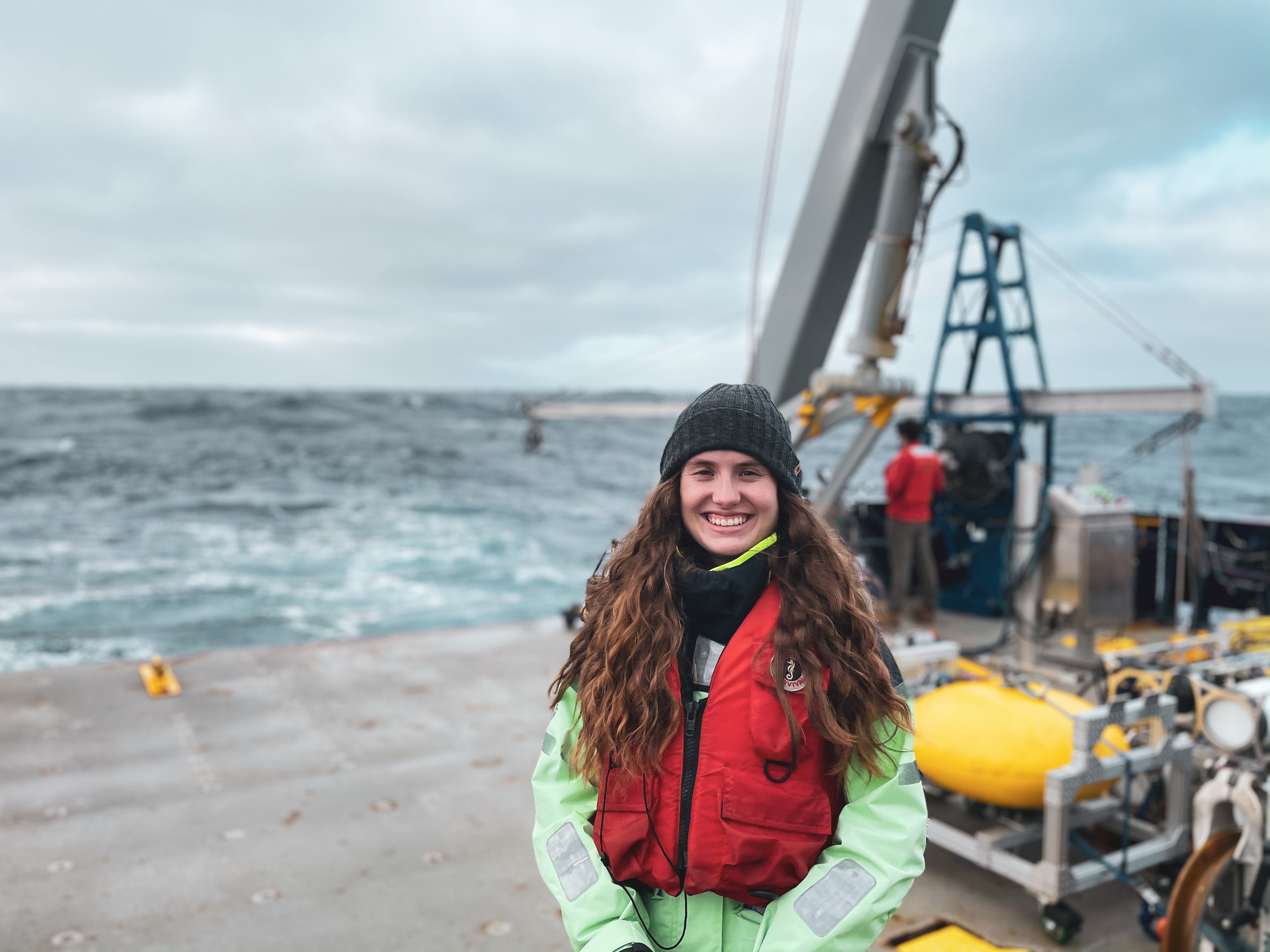Bethan Wynne-Cattanach on deck with the FastCTD in the background.
Tell us a bit about yourself and what you are studying now —
I am a fourth-year PhD student in the Physical Oceanography (PO) program at Scripps. I completed my undergraduate degree in mathematics at Trinity College, Dublin before doing a year-long Masters in PO at Bangor University in the UK.
Broadly, I study turbulent processes near topographic features. My current focus is the Boundary Layer Turbulence experiment that began in the summer of 2021. The aim of the project is to understand how processes close to steep topography, particularly along continental slopes, lead to upwelling. This is an important question related to our understanding of the global overturning circulation. My contribution is primarily looking at data collected using MOD’s FastCTD during a dye release we did as part of the experiment.
What keeps you excited and interested in working in the field of oceanography?
Going to sea has probably been the most exciting part of working in the field of oceanography. Although my work has focused on processes in the deep ocean, being out on the water, witnessing the varying conditions and observing features like fronts, slicks and big waves in person has made the problems I’m studying feel much more tangible. Having that connection to the data has been very inspiring. It is also a reminder of the vastness of the ocean and how little we really understand about how it all works. Which, although daunting, motivates me to try and fill in a little bit more of the puzzle.
When you were a kid, did you expect to be a scientist or engineer?
I was always curious about science as a child, but I didn’t realise that I could be a scientist when I grew up. Despite not having a clear path in mind, I knew that I had to follow my passion for mathematics when I went to university. I was lucky enough to have the opportunity to just do what I loved and figure out how I was going to make it my job later. My experience has made me realise how important it is to show children that there is a wide range of exciting career options in science.
What skills or abilities do you think are useful when applying to graduate school in oceanography?
I think one of the great things about oceanography is that you can come in from so many different backgrounds. This could be previous experience in the earth sciences, physics, maths, engineering or countless other fields. For physical oceanography, having some previous experience with maths or physics is useful but the key is to be curious and to have a desire to apply the analytical skills developed during an undergraduate degree to problems related to the ocean.
What drew you to study at Scripps?
As someone who was applying to graduate school with very little background in oceanography, Scripps seemed like the best choice – the PO program has a full year of classes before beginning research allowing exploration of the field before choosing a thesis topic and we also have the chance to meet with professors and researchers during the first year before deciding who we’d like to work with. My experience at Open House showed me that there were plenty of incredible people to work with and the atmosphere and location of Scripps really couldn’t be beaten!

